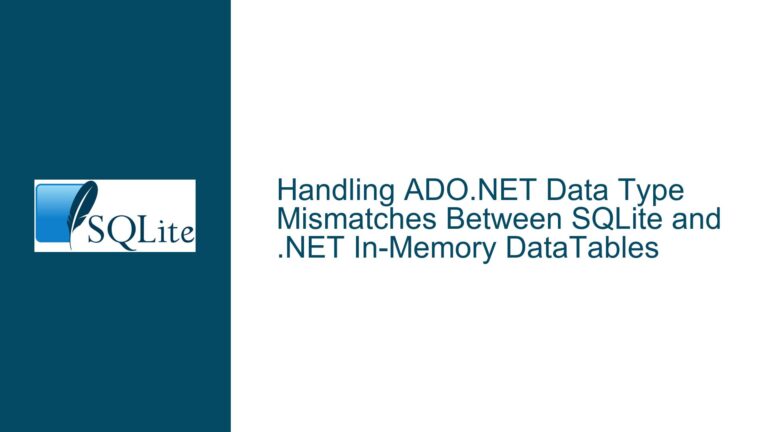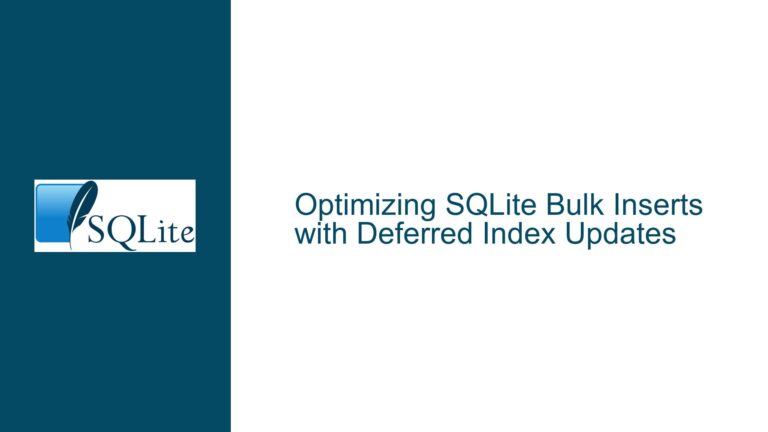Optimizing SQLite Window Functions in Views for Partitioned Queries
Window Function Performance Degradation in Partitioned Views When working with SQLite, one common performance issue arises when using window functions within views, particularly when partitioning data. The problem manifests when a query that uses a window function in a view does not leverage the WHERE clause to filter rows before applying the window function. This…









